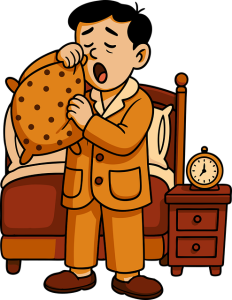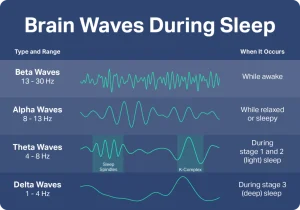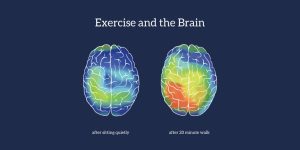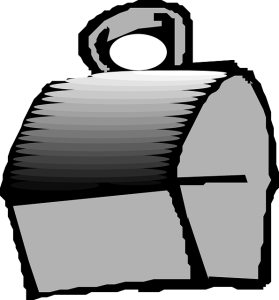-
Are you ‘still’ hitting Golden Slumbers,

or ‘now’ more in Enter Sandman!
I reckon I slept for Australia up to 40 years. After 40 years, quality sleep became intermittent and hit-or-miss. And, as someone who promotes proper nourishment and regular activity for a living, I am prepared to concede that data shows quality sleep is the most crucial factor towards collective wellness. Sleep is King, particularly towards brain health. With this, I’ve spent time with experts strategising on how to restore my once-sleeping superpower.
If you've experienced a decline in sleep quality, please contact me. I now have many well-proven and practised strategies that are non-pharmaceutical or supplemental.
The following is a quick summary of some points of interest. I’ve listed a more detailed assessment in the link below this article.
What is sleep?
First, from my understanding, quality sleep refers to the ability to fall asleep within five minutes of lying down. It involves drifting into the first of two 90-minute non-REM cycles while maintaining a comfortable position, perhaps with some slight side-to-side movements. This is followed by entering a state of three 90-minute cycles of deep REM sleep. Although you might wake up briefly—possibly to use the bathroom—you can typically return to deep REM sleep within two minutes. Ideally, you would wake up just before your alarm goes off, feeling refreshed and ready to get out of bed.
Why is quality sleep critical?
While there are physical reasons for sleep—such as relaxing and recovering from muscle stress (including that of the heart), stabilising blood glucose levels, and optimising fat-burning metabolism—I believe that the primary function of sleep is the cleanup and restoration of brain health, which is vital for achieving optimal well-being the next day.
Efficient sleep cycles help eliminate waste from the brain and recalibrate healthy hormones and neurotransmitters in preparation for the following day. The transitions through various brain wave states are crucial, especially as they move toward the deep REM delta waves, which are essential for thorough brain rejuvenation.
Contrary to the belief that the brain, like the rest of the body, shuts off during sleep, it is important to note that the brain remains active, vibrating with changing wave patterns throughout the night.
What’s the frequency, Kenneth?

💤 Cashing in on the 'delta wave' is crucial.
😫 Failing to align with changing wave cycles can leave your mind foggy, impair your cognitive abilities, and lead to poor decisions, including safety risks.
How Much Sleep Do You Need?
If you wake up feeling refreshed, cognitively sharp, and energetic, then you are getting the right amount of sleep for you.
Most of us have a pre-set circadian rhythm, a biological clock that influences hormonal and neurotransmitter activity, which in turn affects our daily actions and nighttime sleep. Natural light and body temperature play significant roles in maintaining a healthy circadian rhythm. Factors like flying, changing time zones, your distance from the equator, climate, and altitude can certainly disrupt this rhythm.
Understanding your chronobiology type can help you determine the ideal number of hours of sleep that suits you and when to map out your 24-hour cycle. Some individuals naturally perform better later in the day, while others, like me, do their best work in the early part of the day. For further insights, check out Dr. Michael Breus' four biochronotype categories: are you a Dolphin 10%, Lion 15-20% (me) , Bear 50%, or a Wolf 15-20%.
Here’s a quick, typical guide (tips) to improve your sleep. Of course, these tips are not always possible and depend on chronobiology.
😴 First thing, grab some direct sunlight – a mega boost in serotonin.
😴 Activity – best being grounding barefoot on grass (seasonal, of course).
😴 Lower morning carbohydrate choices – keep blood glucose balanced.
😴 Caffeine – yep, the experts believe a spike in caffeine (<150mg) earlier in the day to be a cognitive benefit.
😴 Practice high-cognition tasks earlier in the day.
😴 Minimal caffeine after 10 am – caffeine has an 8-10 hour half-life – and caffeine blocks sleep-inducing adenosine.
😴 Less strenuous evening activity – ideally, the body needs to be cooled before falling asleep.
😴 Minimal ‘evening’ alcohol – yep, alcohol metabolism will create heat, and a sleeping body likes cool.
😴 Some carbohydrates at night – a small glucose rise 2-3 hours before sleeping is ideal.
😴 A warm shower before bed – this cools the body once in bed.
😴 A cool room with accessible linen for an early morning cooling period.
😴 Minimal bedroom blue lights.
😴 Late evening meditation – including the super simple box breathing.
😴 Note – most leading experts dispute the efficacy of pretty much all sleeping supplementation – this includes melatonin.
Finally, Experts have made it clear that sleeping inefficiently occasionally is normal.
Relax, let it go, get on with it! It's the repeated cycles of poor sleep that can lead to ill health.
💤 For a comprehensive sleep assessment and reboot...
THE GOLDEN SLUMBERS recalibrating your project - CLICK HERE
-
Feeling flat, lacking motivation,
idling in a cognitive haze at 11 am or 2.30 pm?
Time to

If you’re human, you’ll have days when your spark, interest, creativity, and mojo haven’t come to play. So, rather than taking a knee and running out the clock, give yourself a quick powerage boost towards finishing your day productively.
2-5 min Powerage!
Punch out a brisk-walk, throw in some stairs (hit those big muscles), permitting; a set of body squats, push-ups, even 10 seconds of bouncing on the spot (e.g. skipping), throw in some up’beat music, and a little whole fruit. Optimally, grab some direct sunlight or checkout a screensaving epic sunrise for 10 seconds.
BOOM! Hello; serotonin, oxytocin, and an oxygenated blood charge up.
Almost always, after a quick body pump, the feeling for another unnecessary coffee, a sweet hit, or blowing up at a colleague disappears (not always).
What are you waiting for? Get Amped!

-
FARMER vs PHARMA
Some more remote cultures still rely on natural products to heal and maintain their best health. Free from contemporary medicine, various illnesses have been treated for generations with tested and proven remedies derived directly from the earth.
I've listed six well-supported natural products that may offer similar (or supporting) benefits to modern medicine.
-
Tank’s Graze Box Experiment!
This is Tank. He is a good mate and could be Sydney's most eligible garbo. He previously appeared in Pampy's Post, where Tank and I swapped diets for a day. I am still yet to fully recover.
Despite my hopes that Tank would be more proactive than reactive when it comes to health, I now accept that I will lose this battle. The pharmaceutical giants must be thrilled with Tank’s willingness to purchase ACE inhibitors, calcium channel blockers, statins, and metformin. That said, Tank has tentatively assured me that he’s prepared to take on "Tank's Garbo Tucker Box" for the day, since I’m the one paying. At the start of the day, I hand him a large Tupperware lunchbox with instructions that he can eat whatever and whenever he likes from the box throughout the day.
The tucker box contains options that are low in sugar, high in fibre, and offer lean protein and antioxidants, while minimising stress on his gut biome. I am keen to know if these selected foods will have a similar effect to both stomach stapling surgery and GLP-1 agonist drugs (like Ozempic), which ultimately lower appetite for all types of food—whether good or bad—so that one simply isn’t hungry.
Tank always overeats carbohydrates when he under-eats protein. When he consumes less (clean) salt, he always increases his sugar intake. Additionally, if he undereats whole foods, he will always overeat processed foods.
I hope that by eating at his leisure, Tank will satisfy his hunger and have little desire for takeaway-industrialised food – his staple.

Tank Box: Beef jerky (not flavoured), cheese, macadamia & almond nuts, sunflower & pepita seeds, carrots, celery, pre-cooked protein (chicken, beef), tinned fish (tuna) – not flavoured), cucumber, natural yoghurt, avocado, hummus, capsicum, cottage cheese, kale chips (oven bake kale liberally splashed with olive oil and sea salt for 12 min @ 180’), dark chocolate, hard-boiled eggs, water.
“So, Tank, how did it go?” I ask.
“Honestly, Pampy, I had to balance the bland, boring options with some of the more tasty items (or, less boring). I mostly nibbled throughout my 10-hour shift.”
“Did you buy, or feel compelled to buy, anything from the servo?” I inquire.
“Well, yeah, of course, I needed a new pack of bungers! But, I didn’t actually eat any of my normal stuff.”
“Well, this is good, Tank! To improve your health, your better choices need to be stacked!” Day after day!
“Yep, I know. I’m in! What time are you bringing my box tomorrow?”

